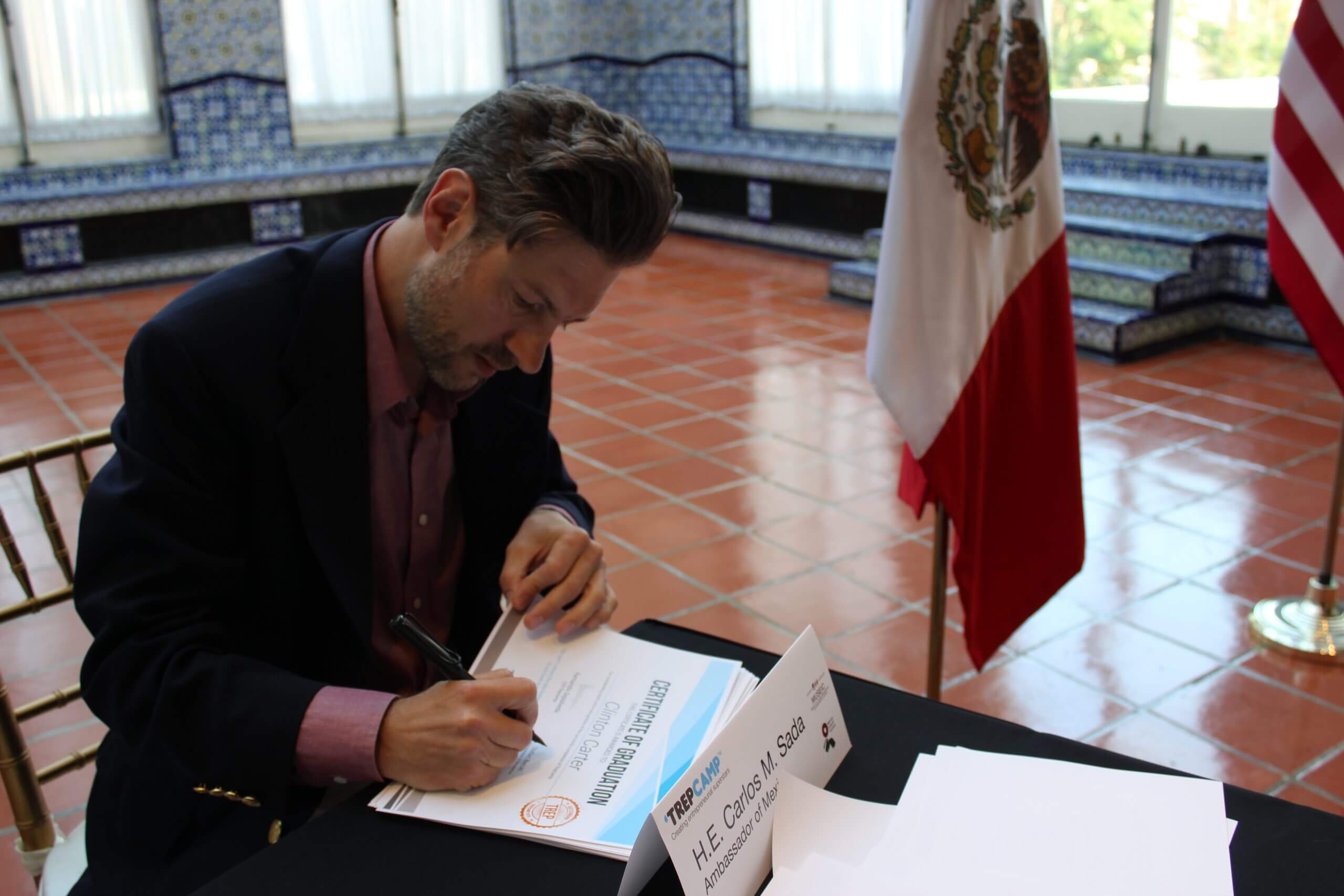About
- Detours & digressions
- Hoops & hurdles
- Plateaus, pit stops & holding patterns
“If the path before you is clear, you’re probably on someone else’s.” – Joseph Campbell
Plus, there are plenty of voids: the space between places. Those interstitial & liminal spaces include:
- the journey between having a career and a calling; the travails between being called and professing a response
- the path between being a faux pro and a true pro
- at the threshold of particular professions and communities of practice (e.g. entrepreneurship, education, creative…). People here feel beckoned, but not yet welcome, like when you have an invitation to a party where you know not a soul. We aim to help them ready themselves for that party, accompany them, show them around, make introductions… and if in the wrong place, take them elsewhere… Read more
Mission
Vision
“Profession” returns to its original meaning: a response and a commitment to one’s own personal calling, integrating each one’s natural gifts/talents, values, and ways of being, rather than being merely what one studied, is certified in, or paid for.
All, having matched their gifts to work to be done, sees they each have the most important job in the world. They will trade in their numerous concerns for very few causes.
More work on the world’s biggest problems.
Values
We all are driven to do both, yet we live in a society, an economy, and especially with technology that makes it much easier to look good (and often to feel good) than it is to do good.
We can best reverse this optics-over-ethics phenomenon through the parts of our lives where we spend the most time and put in the most effort: our work.
Make things as simple as possible—but not simpler
Push back between two trends:
- Attempts to sound smart with big words and complicated ideas—without doing the work to simplify.
- Dumbing down without acknowledging nuance, context, mystery, absurdity and other well-deserved complexity.
Oneness: Unique + Universal
Uniqueness is the ways you are like no one else.
Universality is the ways you are like everyone else.
Focusing on those requires de-empathizing that in between: the ways you are like some and not others. This is the path of categorization and tribalism and parochialism—all of which the world has too much.
Sow peace in the cultural wars
We harmonize for the long term by acknowledging conflict now. We can leverage disagreement into dialogue, debate into dialectic.
Intraculturally, we call out the petty and trivial—plus attempts to silence The Other.
Interculturally, we share, compare and contrast the multi-lingual vocabulary in our shared language.
(Intrapersonally, this applies as well.)
YMMV
“Your Mileage May Vary” is an underused caveat.
Too much advice comes from a works-for-me perspective, limited to the advise giver’s own self, clients, research subjects or similar context.
“Works for me” depends on what “works with me”: one’s own talents, values, and ways of being (how we process information, deal with others, see the world…) and experience implementing.
Diagnose before Prescribing (Dx ⇒ Rx)
“If I had an hour to save the world, I’d spend 55 minutes defining the problem”, said Einstein (perhaps apocryphally).
We chase solutions—and that’s the problem. We’re uncomfortable getting close enough and spending sufficient time with problems to fully understand, communicate and frame them as opportunities for creative solutions.
As in medicine, it’s malpractice to prescribe treatment before a full diagnosis.
Be useful, usable, and used
This is the simplest definition of service journalism—plus of great design. “Interesting”, “inspiring” or learning isn’t enough.
All knowledge should lead to self knowledge.
PoP content and conversations aim to put theory to work for its readers, so they can invite more purpose into their lives.
Care FOR > Care ABOUT
We do more for ourselves and the world when we see:
- Care as a verb/concrete action, not mere feelings
- Our own locus of control, influence, and its limits
- Having a few causes beats many concerns
- The wisdom of subsidiarity and epimelésthai sautou
Model
Frameworks
There are some assumptions, both philosophical and practical, that PoP makes about how one can effectively respond to their callings and do fulfilling work.
Those include:
- what it means to be a true “Professional”
- the duty/gift that comes with callings
- what is really essential work
- how we can “find the others”
Please find explanations below.
Types of Pros
Faux Pros
|
Frank Pros
|
True Pros
- See their profession as a response and public commitment to their calling.
- It integrates their talents, values, tendencies, ways of being…
- Their work is a Call-&-Response type conversation
- Communities tend to coalesce around their work. They need this less themselves, but still appreciate it.
Communitas
About Communitas
With: gift + duty
The root of community is the Latin word communitas.
It comes from cum munas, meaning “with obligation/duty/gift”.
Life’s essentials are dutiful gifts. Children best embody this. And other living things received—a pet or even a houseplant—carry obligations to care for them.
So, do heirlooms. As does the often-accompanying traditions—so this applies to not only things we can touch, but to the abstract.
“With great power comes great responsibility”, Peter Parker (of Spiderman fame) realized—and it took a tragedy to do so. His “Spidey Sense”—like other superpowers—are munas. The noblesse oblige concept is too.
So are our natural gifts and talents, those individual values we cultivate, our tendencies, our ways of being: that is, how we process information, relate to others, and see the world.
Be(com)ing
an Essential Worker
Munas is a paradox. As is a “calling”, which is also a duty + gift. Such a vocation (a vocatiō) means to “call forth”. It summons our talents and tendencies: both those we embrace and those we seem to be unaware of:
- talents that lay latent or ignored.
- our values we flout
- natural tendencies subsumed by how others dictate things be done.
Such a summons is an invitation of sorts, but as with court summons, we’re obliged to respond to it.
That response to a vocatiō is called a professiō, the root of our word profession. To profess is to commit to our calling. So, “professors” would hone their talents with study. Institutions evolved to ensure those earned a living, so they could focus on their gift/duty. We can see how our modern, common sense of profession, being trained in or paid for work came about. Of course, a true profession is deeper than credentials and paychecks.
“Community” vs. Communitas
Q: So, why not just use the word “community”?
Communitas is a special type of community, both more and less than what we typically think of:
- Most communities are built upon accidental conditions like geography, ethnicity, or even affliction. There’s more intention in communitas
- Though this still differs from declared “intentional communities”. They, among other communities. seek to encompass most areas of its members’ lives. Communitas doesn’t aim to be comprehensive.
- Many claim the “community leader” mantle. Communitas aims to be leaderless. It eliminates hierarchy and bureaucracy. We often see this in examples of pilgrimages, if you ever read Chaucer’s Canterbury Tales, or talked to people trekking El Camino de San Sebastian in northern Spain or going to Mecca on The Hajj, you’ll see and hear how status differences are suspended.
- Not long-term/permanent; communitas holds “liminal space(s)”. Liminality, as you probably guessed, has the same root as “limit”: limens, meaning threshold. The whole point is that individuals pass through this liminal space, that they “graduate” to the other side.
- Fostered, not forged. People talk of “building community”, often with ample references to infrastructure—both literal and figurative. Communitas is more organic. It grows—around the work we do anyway. That growth can be nurtured.

